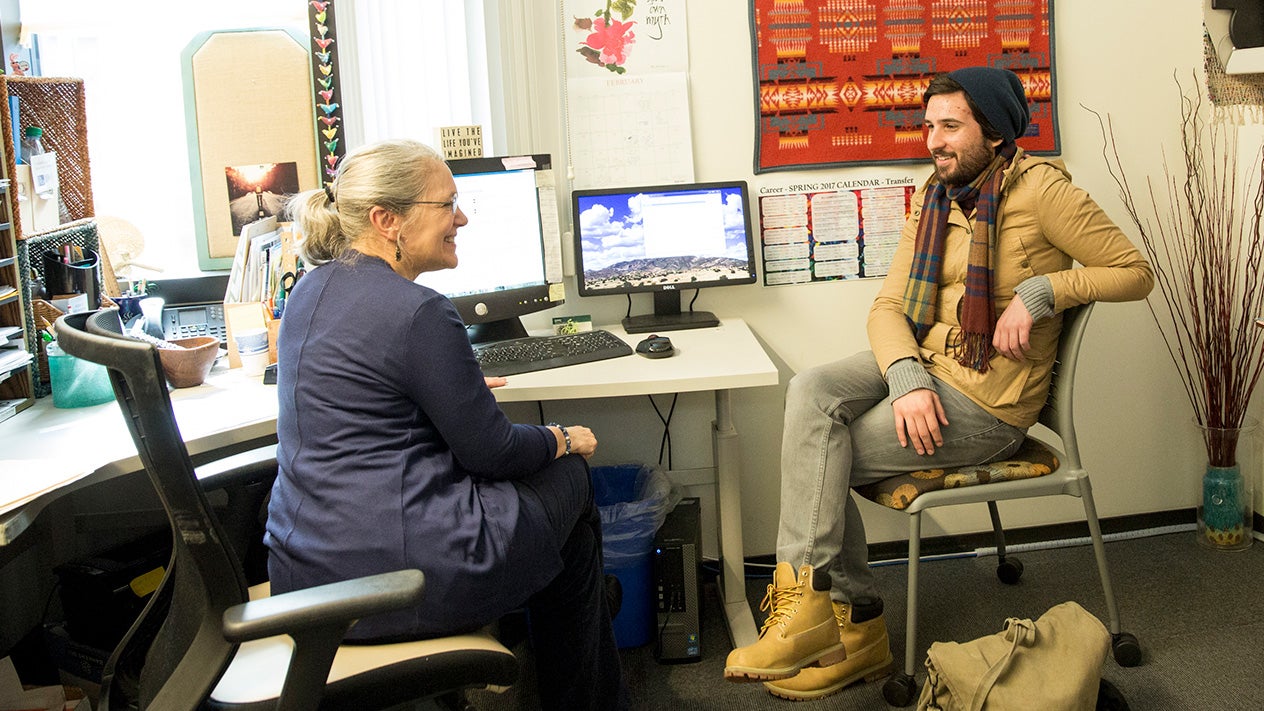We know so many students are dealing with feelings of isolation, depression, anxiety, and many different types of stress. Our goal is to connect you to the right resources and get you the support you need.
Free In-Person Therapy with The Wright Institute
DVC offers a wellness program with support from The Wright Institute. We are currently offering in-person wellness counseling at both Pleasant Hill and San Ramon campuses. If you are not able to talk freely, you can chat with a wellness counselor.
Start the process by completing a Wellness Referral Form and you will be contacted about appointment availability and next steps.
Although we usually have a waitlist, we will reach out to you as soon as possible. If you have questions, please call 925-969-2144 or send an email to wellness@dvc.edu.
About Wright Institute Counselors
Wellness interns are either graduate students in a master's or doctorate degree program, or trainees. Trainees have completed their degree and are gaining required hours for their license. They are here to offer brief therapy, which is free and may include up to ten free sessions. Email wellness@dvc.edu to learn more.
TimelyCare
TimelyCare offers FREE 24/7 medical and mental telehealth services for all current students as part of the DVC Health Services program. This service is funded collaboratively by the Associated Students of Diablo Valley College and the college.
Crisis Drop-in
If you are on campus and feeling overwhelmed, stressed, upset, or need to check in, you can come to Counseling and let the front desk staff know you want to do a "crisis drop in." We will do our best to have a wellness counselor connect with you.
- Pleasant Hill Campus: SSC Building, 2nd Floor, Counseling Front Desk.
- San Ramon Campus: West Administration Building, Information Desk.
If you are in crisis, you can also utilize the resources below.
- Call or text 988 to connect with a crisis counselor.
- Use Crisis Text: Text the word "home" to the number 741741. This is a 24/7 service.
- Call Contra Costa Crisis: 1-800-833-2900 or text the word "hope" to 20121
- If you already have the Timely Care app, click "Talk Now"
- If you feel you are an immediate danger to yourself or others, please call 911 right away.
Immediate Support for Dating & Domestic Violence or Assault
If a sex offense occurs, students may contact:
- Campus Police Services: 925-969-5547
- President's Designee (Conduct Code) - TBA
- Vice President of Student Services: 925-969-2005
